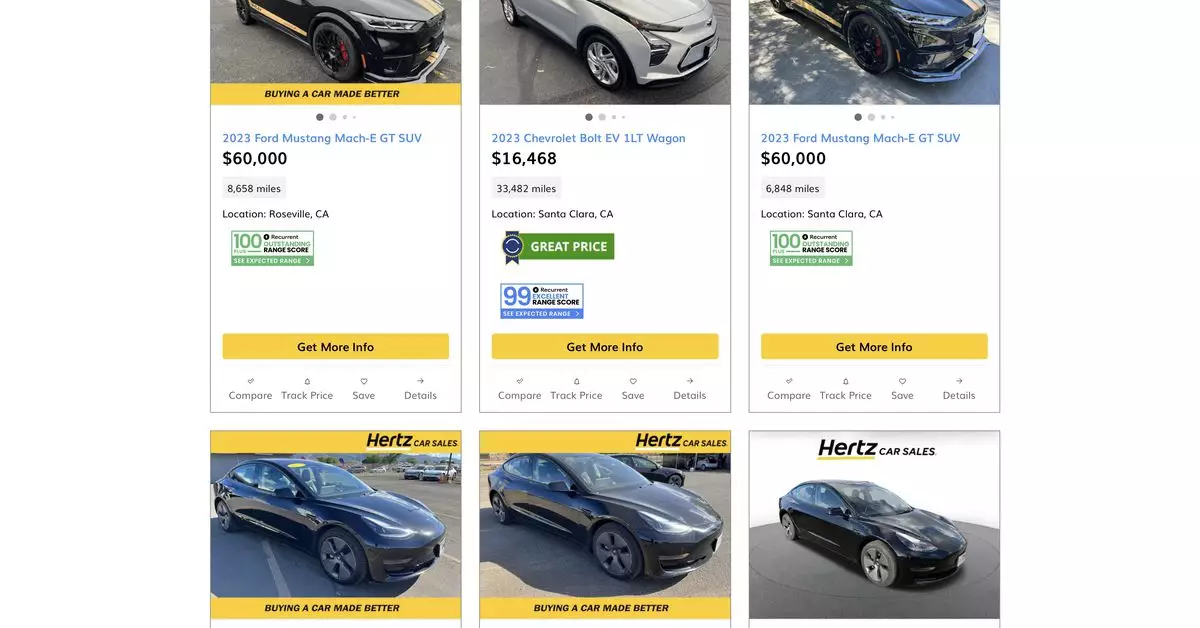In recent times, the electric vehicle (EV) market has witnessed a significant transformation, not just in the technology being utilized but in the sales and rental strategies of companies dealing with these innovative vehicles. Hertz, a well-known name in car rentals, is reportedly shifting its strategy by offering rental customers the chance to purchase the EVs they have been using. This approach comes amid reduced ambitions for electrifying the rental fleet, often driven by low customer demand and rising logistical challenges.
Recent reports have revealed that Hertz is reaching out to various electric vehicle renters, presenting them with enticing offers to buy their rented vehicles rather than returning them. A case in point includes a 2023 Tesla Model 3 owner who shared their purchasing offer of $17,913 on online forums, a figure that aligns with comparable prices on Hertz’s Car Sales site. This vehicle, despite accumulating around 30,000 miles, is still seen as attractive due to its mileage being lower than many current listings. Similarly, renters of other models such as the 2023 Chevy Bolt and Polestar 2 have also reported offers that reveal the company’s aggressive sales tactics.
Accompanying these purchase options are the terms that Hertz is attaching to them. Each vehicle purchase includes a limited warranty that covers the powertrain for 12 months or up to 12,000 miles, alongside a buy-back offer available within seven days of purchase. These warranties may provide reassurances to potential buyers wary of the used car market, positioning Hertz as a competitive player within the EV sales realm.
When approached for comment, Hertz’s communications director Jamie Line disclosed that this method aligns with their goal of increasing sales awareness amongst current rental customers. By creating a direct pipeline from rental service to car sales, Hertz is capitalizing on a unique opportunity that speaks directly to those already interested in the EV lifestyle. This tactic not only acknowledges the demand for affordability in an uncertain economy but also caters to individuals already familiar with the vehicles they are renting.
However, despite these promising moves, Hertz’s journey into the EV market has not been without its hardships. The company has previously scaled back its electrification plans due to unexpectedly low consumer interest and issues related to vehicle repairs, notably concerning models like the Tesla Model 3. Earlier this year, Hertz announced it would cease purchasing Polestar 2 models and even earmarked up to 30,000 Tesla vehicles for sale from its rental fleet, highlighting a cautious pivot from its previous expansionist philosophy.
Hertz’s current strategy represents a noteworthy shift in how traditional rental companies are navigating the evolving EV landscape. By enabling renters to transition into buyers, Hertz is not only adapting to market demands but also fostering a deeper connection between consumers and the vehicles they drive. As the automotive industry continues to transform, this dual approach may very well shape the future of EV rentals and ownership.

